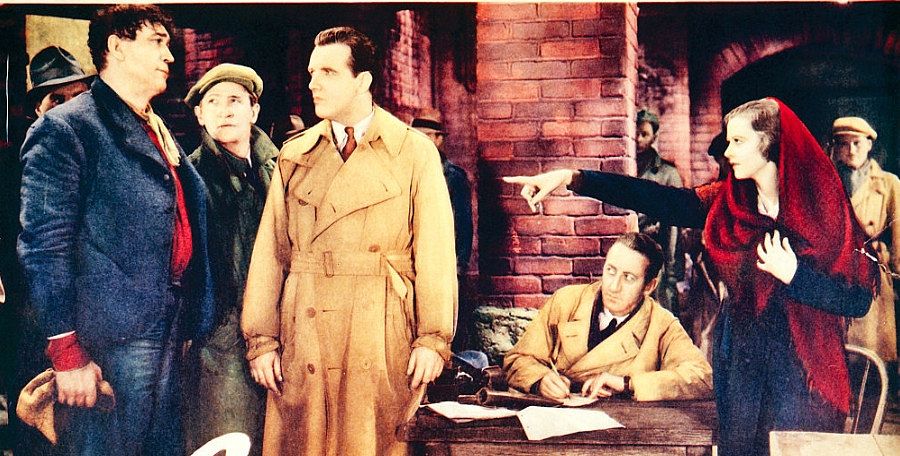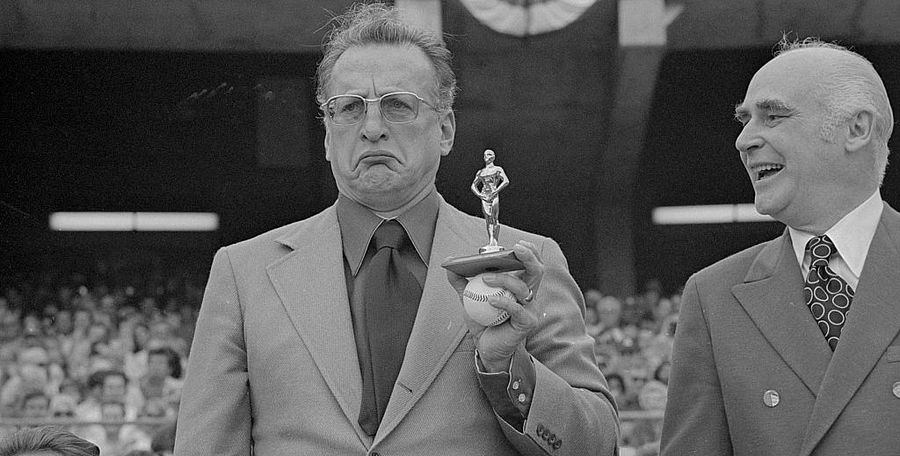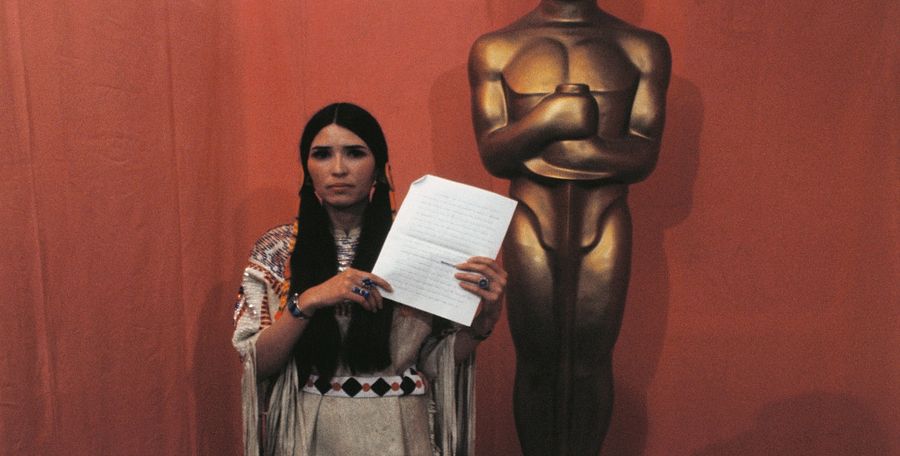The three Oscar winners who refused their awards - and why
Winning an Oscar, for some in the movie industry, is the highlight of their career.
It's viewed as the culmination of endless hours working, toiling without recognition or reward, very often against the odds - all for the hope of some shiny statues and a nice picture in a tuxedo or a ball-gown.
To date, just three people have rejected an Oscar out of well over 2,000 winners (though one of them eventually accepted it a few years later).
Dudley Nichols - 1935 Oscar for Best Screenplay
The first person to reject an Oscar was screenwriter Dudley Nichols, who won for Best Screenplay for the 1935 film, 'The Informer'. Set during the Irish War Of Independence and adapted from the novel of the same name by Liam O'Flaherty, the film was a heavy favourite at the Oscars that year. John Ford would go on to win Best Director with Nichols winning Best Screenplay.

A lobby card for the 1935 drama The Informer, featuring Victor McLaglen (left), Preston Foster (third from left) and Heather Angel. (Photo by Silver Screen Collection/Getty Images).
However, Nichols refused to accept the Oscar and cited an ongoing writer's strike in Hollywood as his reason. The story goes that Nichols eventually accepted it three years later in 1938 after the dispute had been settled. Not only that, Nichols was elected President of the Writers Guild Of America - owing most likely to his refusal of the Oscar.
Although Katherine Hepburn famously never attended the Oscars when she was nominated or won, she did proudly display the statues in her home. The next person to refuse an Oscar didn't come for another 35 years.
George C. Scott - 1971 Oscar for Best Actor
George C. Scott, who was noted for his utter distaste for the entire ceremony, was nominated for his performance as General George S. Patton in the film of the same name. Scott had been nominated in 1962 for Best Supporting Actor in 'The Hustler', and had refused it then. When nominated a second time, he again refused the nomination.
Scott famously called the Oscars "a two-hour meat parade, a public display with contrived suspense for economic reasons," and sent a telegram to the Academy telling them that he'd be refusing the award, and didn't even want his name on the ballot. The telegram read in part, "I respectfully request that you withdraw my name from the list of nominees. My request is in no way intended to denigrate my colleagues."
As it just so happened, Scott ended up did winning. To make matters worse, Scott's win came at a time when the Academy Awards' legitimacy was being called into question, especially as it was now being televised for the first time. Through the film's producer, Frank McCarthy, the Oscar was accepted on the night and returned to the Academy the very next day.

George C. Scott shows his feelings as he holds a small Oscar presented to him by Oakland As owner Charles Finley. Scott was at the stadium for the Athletics-Detroit Tiger game.
Eventually, the Oscar statue ended up on display at the George C. Marshall Foundation Library at the Virginia Military Institute, where it remains to this day.
Marlon Brando - 1973 Oscar for Best Actor
Just three years later, in 1973, perhaps one of the most famous moments in Oscar history occurred. Marlon Brando, another heavy favourite to win the Academy Award for Best Actor for his performance in 'The Godfather', was announced as the winner. Brando, however, wasn't quite as forthcoming with his refusal as Scott had been. Sure enough, Brando didn't turn up to the Academy Awards - but as an added gesture, he sent Sacheen Littlefeather in his stead.
Brando had become active in the American Indian Movement in the early part of the '70s, and planned his refusal as a way to highlight the Wounded Knee incident, which began a month before the Oscars themselves. Essentially, the Wounded Knee incident involved the occupation of the town of Wounded Knee by close to 200 Oglala Lakota and AIM activists. In total, the town was occupied for 71 days.

Sacheen Littlefeather displays the hand-written speech from Marlon Brando, which was read out in full during the press conference following the incident.
That incident, according to an interview Littlefeather gave to the LA Times in 2016, was under an FBI press blackout. Contacting leaders in the AIM, they decided that Littlefeather be sent in Brando's stead. Dressed in a traditional Apache dress, she was given a fifteen-page speech to read out, however a producer on the show allegedly threatened to have her physically removed and arrested if her speech went over 60 seconds.
Littlefeather improvised a speech on the dais, but not before gesturing that she did not want the statuette. As it turned out, Roger Moore ended up taking the Oscar home with him and keeping it for several years before an armed guard from the Academy arrived to collect it. After Littlefeather's small speech had ended, the Academy instituted a new rule that no proxy speeches be given by winners in future. Brando's fifteen-page speech was read out in full in the press room following the incident.
Although never confirmed, another story from the night goes that John Wayne was standing in the wings when the incident occurred, and that six men had to hold him back from assaulting Littlefeather when she left the stage.
Here's the moment as it happened on the night.
Unlike George C. Scott or Dudley Nichols' refusal, Brando's was specifically designed to court public attention - and it did just that. The trade bibles quickly went to work on Littlefeather's background and ancestry, who claimed that she wasn't Apache at all. Littlefeather, who had done some work as an actress, never worked again in the film industry again.
Since then, no Oscar has been refused, though some nominees have not attended the ceremony itself and, in one fairly recent incident, the wrong winner was called out on the night.

